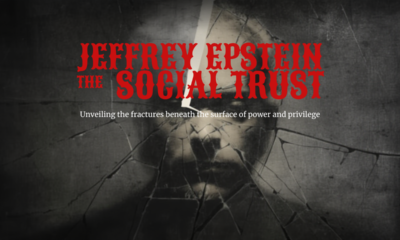Constitution
Independence Day – time to reflect
This Independence Day, Americans should reflect on how independent we are as individuals, and how to stay that way.
Today is Independence Day in America, which turns 247 years old today. An anniversary day, besides giving reason to celebrate, presents an opportunity to reflect, to review, and to re-evaluate. Sadly, America has a great divide, that results from worse than ignorance of civic principles. Certain influencers, after a century and a half, have divided America between the haves and the have-nots. Or rather, between the independent and the dependent, who rely on a system of laws to keep “the goodies” coming. Furthermore, such dependency gives rise to wishful thinking, which pervades the politics of half the country. Only a renewed commitment to independence, of thought, action, and sufficiency, can save America from utter ruin.
How an adult demonstrates independence
A responsible adult demonstrates and acts out independence by accepting responsibility, for both his acts and his sustenance. The relationship between dependence and independence on one hand, and political outlook on the other, is proverbial. When one is young, so the proverb goes, if one is not a liberal, he has no heart. But as one gets older, if he does not at the same time turn conservative, he has no brain.
Age alone is not the measure, however. Whether one takes appropriate self-command, is. So let us revise the proverb, as follows. When one depends on others, if one is not a liberal, one has no heart. But when one becomes independent, if he does not at once become conservative – well, it’s not that he hasn’t a brain, but that he does not use his brain.
The left – and especially such influencers as the Frankfurt School and other Marxist schools – know this relationship. So they try to sell another vision of the world and of humanity’s place in it. In the dream world of their design, no one is better able than another. Or if he is better able, then he must work that much harder to supply the needs of others. “From each, according to his ability, to each, according to his need,” said Karl Marx. Or so said Louis Jean Joseph Charles Blanc, from whom, some say, Marx stole it. Whoever said it first, it definitely expresses the socialist ideal.
From mutual dependency to misplaced fear
But the politics of the dependent go much further than that. Those who sold a vision of mutual dependency have also sold a vision of mutual shame. Perhaps the dependent know instinctively that a system of mutual dependency cannot last. Something must inevitably bring it crashing down on everyone’s heads. Cleverly, the sellers say yes, of course the system cannot last, because there are too many of us! Too many mouths to feed, too great a “footprint” on the natural (i.e., the wild) environment. From this we get an environmentalism that regards humanity, not as stewards, but as trespassers. Such is the basis of regimes to diminish the population, and establish “the wild” as deserving not only protection but also worship.
And because such weighty questions are not for the layperson, the system mustn’t allow parents to raise their own children. Of course, they shouldn’t be having children at all. George Orwell famously predicted that the authorities would solve the problem by outlawing male-female affections – the Anti-sex League. They solved it instead by decoupling intimate relations from procreation altogether. And also by encouraging forms of intimate contact that twist out of shape God’s original design. (God? He doesn’t exist! If you believe in Him, you’re doped up; that’s why we call it “opiate of the masses”!)
Behold the result. Half the country depends on the other half, and willingly votes for a tyrannical regime – both to protect their dependency interest and to alleviate their fears of systemic failure.
A smaller population is a more controllable one
More than that, our country’s population is not replacing itself. That can only suit the masters. Some of them probably want the planet to themselves. Others, while not going quite that far, recognize that the fewer people in a society, the easier they can control those few.
Fear, of course, is their primary weapon. Fear of systemic failure – or fear of control or cheating of them by others in society. Of course, those having those fears don’t realize that someone is controlling them and/or cheating them. But it’s not who they think it is. Instead it is the global political left – today the World Economic Forum, the Bill and Melinda Gates Foundation, whoever.
The largest employers, whoever isn’t part of the grand scheme, have their own fears. To alleviate them, the controllers offer the replacement of human beings by machines. We see that in fully automatic fast-food joints, and stores that schedule no checkout associates, leaving customers to self-checkout. That very act makes human beings superfluous, and only increases dependency.
Regaining independence
Happily – or perhaps joyously – CNAV can report definite efforts to reassert independence. The United States Supreme Court, over two terms (2021 and 2022), has worked to restore that independence in two ways. First it has re-enabled or reauthorized citizens and lawful residents to assert independence in critical ways. Second, it has placed responsibility back on people who have abdicated it for too long.
The late Robert A. Heinlein observed that “authority and responsibility must be equal.” As a corollary, autonomy and self-responsibility must also be equal. Independence is the balance of autonomyh and self-responsibility at a high level of each.
Last term, the Supreme Court “reauthorized” independence of physical defense and relationships with God, by faculty and students (and parents). The Court also reasserted separation of powers. Quasi-legislative, quasi-judicial executive agencies are no longer authorized to make law, but only to execute it. This term, the Court continued these processes. They further curtailed the power of executive agencies to make law as they went. Furthermore they restored freedom of religious expression.
In two critical cases the Court also reimposed the burden of self-responsibility. That now applies (somewhat) to reproduction as a consequence of intimate contact, and most of all to qualifications for higher education. That last is especially important. No more, said the Court, may governments – or even private colleges – actually refuse admission to the successful, as a punishment. They who apply themselves, will now get the rewards they have earned – and that, too often, others have denied them.
Protests of the dependent
The dependent in our society continue to protest – loudly. Representative Alexandria Ocasio-Cortez (D-N.Y.) is now the most obvious public offender in this regard. (But not the worst offender. That dubious distinction belongs to Justices Ketanji Brown Jackson, Elena Kagan, and Sonia Sotomayor. But other, better able voices – which is to say, Chief Justice John Roberts and Justices Neil Gorsuch and Clarence Thomas – have given them the reprimands they deserve.)
Consider this particular protest:
What is she talking about? About highly dubious theories by which she tries to proscribe conduct in which Kagan and Sotomayor have engaged as well. (Jackson might not have had time.) But that’s a mere quibble. Joe Saunders, writing in The Western Journal, quotes her more extensively and more gravely:
These are the types of rulings that signal a dangerous creep toward authoritarianism and centralization of power in the courts. In fact, we have members of the court themselves, with Justice Elena Kagan saying that the court is beginning to assume the power of a legislature.
Clearly the shoe is squeezing the other foot. The Supreme Court today isn’t trying to supplant the Congress, but to restore to Congress its prerogatives. And perhaps to tell the Congress not to abdicate them again to the extent they have in the past. But that doesn’t matter. What matters to “AOC,” as it matters to Jackson, Kagan and Sotomayor JJ, is a set of results.
This is only one example. Similar protests have sprung up on all the other issues that two years of landmark rulings have touched. The abortion issue is bad enough; the gun control and religious exercise issues are worse.
Conclusion
All of which proves a point that the Irish politician John Philpot Curran most likely made:
The price of liberty is eternal vigilance.
If Thomas Jefferson never said that, he would certainly agree with it. American political life has shown this for several years. Certainly the price of independence is eternal vigilance.
So as you celebrate Independence Day, remember that independence, once won, must be continually defended. Many will likely have to relearn independence, after the Supreme Court has spent two years correcting some of its worst past errors in this regard. In the time since the Court made those errors, many forgot what independence felt like. They must learn it again, to avoid losing it again.
Terry A. Hurlbut has been a student of politics, philosophy, and science for more than 35 years. He is a graduate of Yale College and has served as a physician-level laboratory administrator in a 250-bed community hospital. He also is a serious student of the Bible, is conversant in its two primary original languages, and has followed the creation-science movement closely since 1993.
-

 Civilization3 days ago
Civilization3 days agoTariffs, the Supreme Court, and the Andrew Jackson Gambit
-

 Civilization3 days ago
Civilization3 days agoWhy Europe’s Institutional Status Quo is Now a Security Risk
-

 Civilization1 day ago
Civilization1 day agoMaduro’s Capture: U.S. Foreign Policy in Latin America
-

 Civilization4 days ago
Civilization4 days agoDeporting Censorship: US Targets UK Government Ally Over Free Speech
-

 Civilization4 days ago
Civilization4 days agoEpstein and the destruction of trust
-

 Executive4 days ago
Executive4 days agoWaste of the Day: Wire Fraud, Conflicts of Interest in Connecticut
-

 Civilization2 days ago
Civilization2 days agoTrump Lashes Out at Supreme Court as Under ‘Foreign Influence’
-

 Education5 days ago
Education5 days agoWaste of the Day: Throwback Thursday – The Story of Robosquirrel










